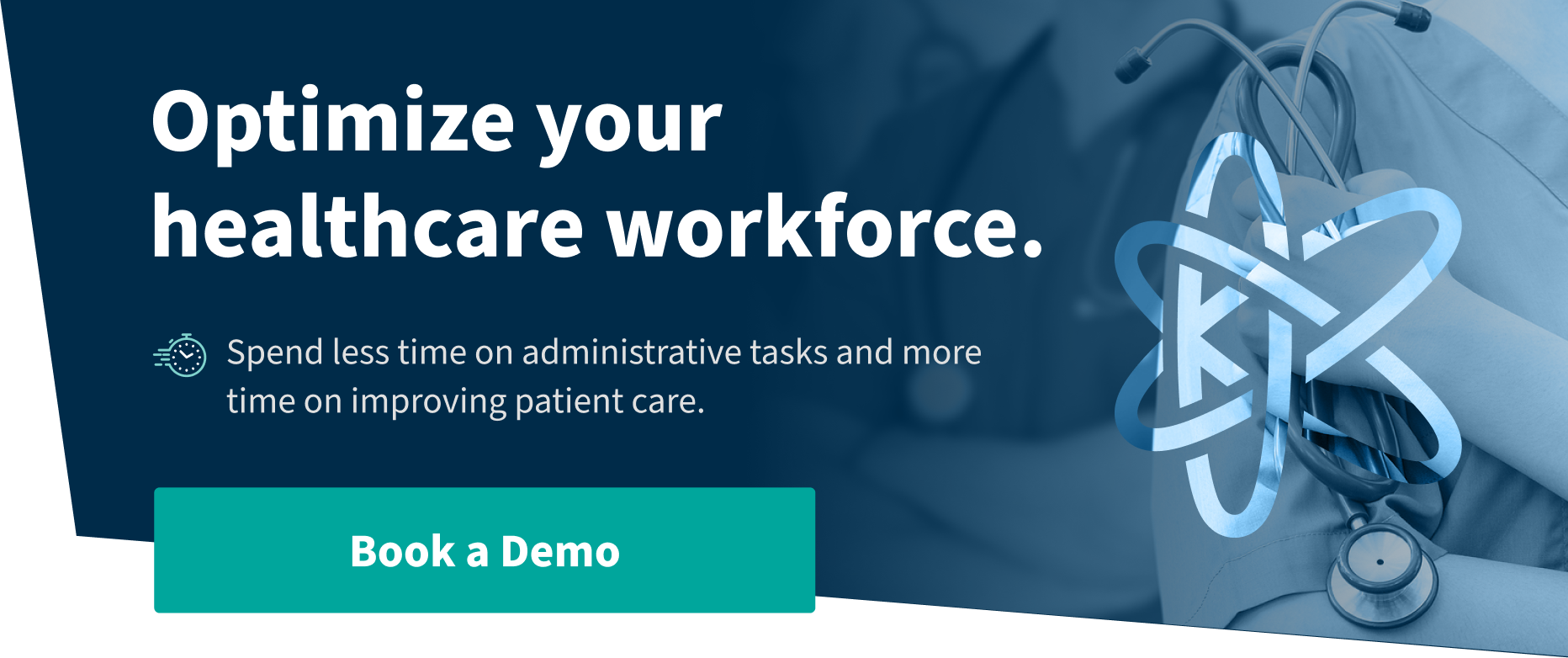Healthcare CRMs are your digital Swiss Army knife for managing patient relationships and streamlining operations. If you're drowning in paperwork, juggling appointments, or struggling to keep track of patient interactions, you're in the right place. We're diving into four top-notch CRMs that could revolutionize how you run your healthcare practice.
What is a Healthcare CRM and how to choose the right one?

A Customer Relationship Management (CRM) system for healthcare is a specialized software solution designed to manage patient relationships, streamline healthcare operations, and improve overall patient care. It helps healthcare providers organize patient data, track interactions, manage appointments, and enhance communication between patients and healthcare professionals. A healthcare CRM centralizes patient information, medical histories, treatment plans, and communication records, allowing for more efficient and personalized care delivery.
Choosing the right healthcare CRM is crucial for maximizing its benefits. Here are five key points to consider when selecting a healthcare CRM:
- Integration Capabilities: Choose a CRM that can seamlessly integrate with existing healthcare systems, such as Electronic Health Records (EHR), practice management software, and billing systems. This integration ensures smooth data flow, reduces manual data entry, and provides a comprehensive view of patient information across different platforms.
- Customization and Scalability: Opt for a CRM that can be tailored to your specific healthcare practice needs and can grow with your organization. It should offer customizable fields, workflows, and reporting options to accommodate various specialties and practice sizes. The system should also be scalable to handle increasing patient volumes and expanding service offerings.
- Healthcare-Specific Functionality: Choose a CRM built specifically for healthcare, with features that cater to medical practices. It should handle shift management for healthcare staff, support various appointment types (e.g., in-person, telehealth), and include modules for managing patient intake forms, referrals, and insurance verifications. The system should also accommodate different medical specialties and their unique workflows.
- Reporting and Analytics Capabilities: Choose a CRM that offers comprehensive reporting and analytics tools to gain insights into patient trends, treatment outcomes, and practice performance. The system should provide customizable dashboards, key performance indicators, and data visualization options to help healthcare providers make data-driven decisions and improve operational efficiency.
Salesforce Health Cloud
Salesforce Health Cloud is a comprehensive customer relationship management (CRM) solution specifically designed for the healthcare industry. Built on the robust Salesforce platform, it offers a wide range of features tailored to meet the unique needs of healthcare providers, payers, and life sciences organizations.
At its core, Health Cloud provides a 360-degree view of the patient, integrating data from electronic health records (EHRs), medical devices, and other sources to create a holistic patient profile. This unified view enables healthcare professionals to deliver more personalized and coordinated care.
Key features of Salesforce Health Cloud include:
- Patient Management: Offers tools for managing patient relationships, including communication preferences and care plans.
- Care Coordination: Facilitates collaboration among care team members, improving care continuity and patient outcomes.
- Patient Engagement: Provides patient portals and communication tools to enhance patient involvement in their healthcare journey.
- Analytics and Insights: Leverages Salesforce's powerful analytics capabilities to derive actionable insights from patient data.
- Population Health Management: Offers tools for segmenting patient populations and managing health at a community level.
Health Cloud's flexibility allows for customization to meet specific organizational needs, whether it's a small clinic or a large hospital network. Its cloud-based nature ensures scalability and accessibility.
LeadSquared
LeadSquared is a customer relationship management (CRM) and marketing automation platform that has gained popularity across various industries, including healthcare. While not exclusively designed for healthcare, it offers features that can be adapted to meet the needs of medical practices and healthcare organizations.
Key features include:
- Lead capture and management: Efficiently captures and organizes leads from various sources, enabling effective tracking and nurturing of potential patients.
- Marketing automation: Automates repetitive marketing tasks and creates personalized patient journeys to improve engagement and conversion rates.
- Email marketing and campaign management: Designs, sends, and tracks email campaigns, allowing for targeted patient communication and follow-ups.
- Sales pipeline management: Visualizes and manages the entire patient acquisition process from initial contact to conversion.
- Mobile app for on-the-go access: Provides access to crucial information and task management capabilities via smartphone, enhancing productivity for healthcare professionals.
- Analytics and reporting tools: Offers insights into practice performance, patient acquisition costs, and conversion rates through customizable dashboards and reports.
- Task management and workflow automation: Streamlines daily operations by automating routine tasks and managing team workflows efficiently.
The platform excels in lead nurturing and conversion, which can be valuable for practices looking to grow their patient base or manage referrals effectively. Its robust marketing automation capabilities enable healthcare providers to create targeted campaigns and automate follow-ups, enhancing patient outreach and education efforts.
However, LeadSquared is not specifically designed for healthcare, which means it may lack some industry-specific features found in dedicated healthcare CRMs. LeadSquared's scalability allows it to accommodate both small practices and larger healthcare organizations. However, as an organization's needs become more complex, there may be challenges in adapting the platform to handle specialized healthcare workflows or integrating with a wide array of medical systems.
Microsoft Dynamics 365 Healthcare
Microsoft Dynamics 365 Healthcare is a comprehensive customer relationship management (CRM) solution tailored for the healthcare industry. It integrates various Microsoft cloud services to enhance patient engagement, streamline operations, and improve clinical and operational insights.
Key features of Microsoft Dynamics 365 Healthcare include:
- Unified Patient View: Provides a 360-degree view of each patient, integrating data from multiple sources to create a comprehensive patient profile.
- Care Coordination: Enhances collaboration among healthcare teams, facilitating better communication and decision support for frontline workers.
- Virtual Health Capabilities: Supports virtual care workflows with high-quality audio, video, and screen sharing for remote patient consultations.
- Patient Engagement Tools: Offers personalized patient experiences through patient access portals, service centers, and outreach programs.
- Clinical Analytics: Utilizes data from multiple sources to improve patient care through predictive analytics and clinical trend identification.
- Operational Analytics: Synchronizes management efforts across clinicians and administrators to reveal actionable insights into cross-institutional operations.
Kimedics
Kimedics is a cloud-based healthcare CRM and practice management solution designed specifically for medical practices. Its focus is on managing the healthcare workforce, partners, and operations, rather than being a traditional patient-focused CRM.
Key features and benefits include:
- Comprehensive Workforce Management: Kimedics offers end-to-end solutions for onboarding, scheduling, pay management, spend automation, and forecasting/analytics.
- Collaboration Tools: It provides visibility and collaboration between healthcare organizations and clinicians through built-in provider, vendor, and client portals.
- Scheduling and Time Management: The platform includes a scheduler with shift-tracking capabilities and time and attendance features.
- Financial Management: Kimedics offers automated pay and spend tracking functionalities.
- Integration and Analytics: It provides API integrations and robust analytics and forecasting tools.
- Customization: The platform supports custom workflows, checklists, and task tracking.
- Efficiency Improvements: Kimedics aims to improve operational efficiency through automation and comprehensive tracking features.
Kimedics is often praised for its user-friendly interface and its focus on the specific needs of smaller medical practices. It's designed to be intuitive and easy to implement, which can be particularly appealing for practices that may not have extensive IT resources.
The Million-Dollar Mistake

In recent years, we've witnessed healthcare organizations invest millions in attempting to adapt traditional Customer Relationship Management (CRM) systems to manage their workforce. While these efforts are well-intentioned, they often result in costly failures and frustrated teams.
Traditional CRMs are designed for sales and customer management, not the complex needs of healthcare workforce management. They lack critical features like credentialing tracking, shift scheduling, payroll, etc. Healthcare organizations use numerous specialized systems. Traditional CRMs often struggle to integrate seamlessly with Electronic Health Records (EHRs), billing systems, and other healthcare-specific software.
Unlike traditional CRMs, Kimedics is built from the ground up for healthcare workforce management, offering features like credential management, shift scheduling, and compliance tracking out of the box. With Kimedics, you avoid the high customization costs associated with adapting traditional CRMs. Our system is ready to use with minimal configuration.
By choosing Kimedics, healthcare organizations can avoid the pitfalls of trying to force-fit a traditional CRM into a healthcare workforce management role. Instead, they gain a powerful, purpose-built solution that addresses their specific needs, saves money in the long run, and enables more efficient, compliant workforce management practices.
Book a demo with the Kimedics team. They'll show you how it can lighten your administrative load.


